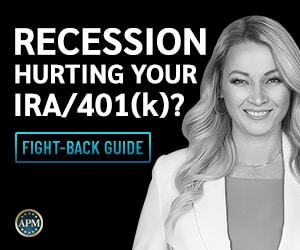What does the expression of interest mean?
EOI in business stands for Expression of Interest, and this term is specifically used in the initial transaction documents when a buyer is interested in acquiring a seller’s company. EOI also ensures that the buyer is interested and ready to pay a certain valuation amount to the seller.
This term is quite popular in the field of M&A deals. By mentioning EOI, the buyer showcases that the party has serious interests to acquire the seller’s firm or company through a formal process.
Therefore, EOI is an essential part of the introductory phases of any M&A deal agreement. As mentioned, it specifies that the buyer is interested in acquiring the seller’s company to take it for further betterments and higher accomplishments. In this context, if you are now keen to know more about EOI or Expression of Interest, then you have definitely landed on the right page. So, please continue checking the following sections to know more about EOI and its contents.
Reveal the Contents of EOI in business
Whether you’re a seller or a buyer and are interested in using an EOI, make sure to know more about its contents (as described in the below sections).
1) EOI Purchase Price: It is an important part of the EOI document. The EOI’s basic purpose is that the buyer is interested in acquiring the seller’s company and closing the deal. That’s why EOI must include the total payable or purchase amount, which includes complete valuations and payments for bonuses, ESOPs, and all other related items that are issued by a seller.
In this case, please note that the buyer has the right to change or modify the payment terms and considerations. What’s more, the buyer may decide not to proceed with the transaction. That’s primarily because — the document shows only an expression of interest, and it’s a non-binding document for both parties.
2) EOI Valuation Methodology: EOI also ensures to mention the key valuation methodology as well. The key assumptions that are used to do this valuation should also be mentioned in EOI. For example, EOI should ensure the following assumptions:
The historical financials that are presented by the seller should be accurate and complete. The projections that the seller has provided must be fair and accurate. All the contracts, i.e., employment contracts, vendor contracts, facilities contracts, and customer contracts, must be transferred to the buyer without any additional payment.
3) EOI Due Diligence: Conducting due diligence is an important part of completing a successful deal. For example, it should highlight the following areas of a business, such as Business, Legal, Customer Contracts, Finance, Sales and Marketing, Vendor Contracts, Facility, Human Resources, Plant, Machinery, and Technology. EOI checks for the due diligence of all of these above-mentioned business areas.
4) EOI Transaction Structure: Another content of an EOI can be the transaction structure. Please note that the transaction structure is important for both buyer and seller. It indicates whether the buyer is opting for a complete buyout or is most interested in carving out a particular division. If the buyer is interested in purchasing some particular type of assets and contracts, it should be mentioned here. Additionally, the transaction structure part of an EOI should mention how the buyer will fund the transaction’s entire purchase price. For example, it can be in the form of a cash balance or bank loan.
5) EOI Management Retention Plan: This part can also be mentioned in an EOI. It implies whether the buyer is interested in retaining the management level positions as earlier, or the buyer is more interested in re-organizing and re-arranging everything.
6) EOI Approvals Needed for the Transaction: For closing the deal, the buyer will definitely need the sign-off from the board of directors. Therefore, EOI may include that part too so that the seller can also know about it. Additionally, proper timelines for obtaining such approvals can be mentioned as well.
7) EOI Transition and Support Services: It may be possible that the buyer may require some transition and support services for a certain time of time from the buyer. In such cases, no additional costs will be borne by the buyer apart from the previously decided purchase price for such services.
8) EOI Conduct of Business: It’s expected that the seller will conduct the business as per the normal state. In any case, if the seller wants to change this, then the change must be intimated to the buyer as well. This condition of effective conduct of business must be mentioned in EOI.
9) EOI Confidentiality: This is the rule of confidentiality that should be included in an EOI. It implies that the seller can not disclose the buyer’s name and the purchase consideration to any third party without the buyer’s written consent and approval. After all the definitive agreements are sealed and signed-off, only the seller can publicly reveal such details.
10) EOI Transaction Expenses: In an EOI, it’s clearly emphasized any transaction expenses need to be borne by the individual party on its own. Such transaction expenses can be related to the following business areas, such as negotiation, due diligence, legal support, professional support, and drafting of all legal agreements.
11) Non-Binding Agreement: EOI must ensure to mention this part too, i.e., it’s basically a non-binding agreement. To be more precise, it’s an expression of interest. Of course, no party is liable to close and sign-off the deal. Neither the seller nor the buyer will be allowed to file any legal case of damage for providing an EOI.
The Final Verdict:
This is another term that we can see in company stock analysis.
With this, you have revealed a brief overview of EOI and its contents. All of these above-mentioned eleven factors can be mentioned in an EOI. Apart from that, there will be the last paragraph of the thanking note where the buyer will thank the seller for creating a sale opportunity. The buyer’s contact details should also be mentioned in an EOI (Expression of Interest) to opt for further discussion, communication, and clarification.
























